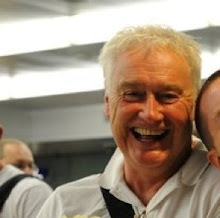A review of DO I HEAR A WALTZ by Richard Rogers and Stephen Sondheim, at Park Theatre
I cannot in all conscience recommend DO I HEAR A WALTZ to any but the most forensic Sondheim fans. It does contain a version of ‘We’re Gonna Be Alright’ but it’s the heavily cut and anodyne one where the couple actually may get along together rather than the acid picture of a disintegrating relationship when David Kernan and Millicent Martin delivered the sharper lyrics in Side by Side by Sondheim.
Not restoring this song gives a clue to Charles Court Opera’s production at the Park Theatre – it’s all about the singing, the staging feels very low-budget and the comedy isn’t given the free rein it should be to make the show more palatable.
The story is curious – several American couples holiday in Venice but the plot revolves around maturing singleton Leona. There are some good lines about getting by on one’s own, although she could use a stronger song which reinforces that; eventually she meets a Venetian shop owner who isn’t the handsomest of men, but she falls for him. In a pleasantly un-saccharine ending he turns out to be in some ways false, but also accusing her for the way she treats him as a trophy to be acquired like a holiday souvenir. If the music matched the modernity of the plot it would be better, but casting mostly opera singers makes many of the numbers sound forced.
As Leona, Rebecca Seale is the least operatically-trained member of the cast and after a shaky start is smart-mouthed and engaging; as her lover Renato, Philip Lee - a crisply starched alternate Mr Snow opposite Sarah Tynan in Opera North’s gorgeous Carousel at the Barbican - is the best singer in the show but he knows it and his solos are over-posed and unbalanced. Although he sings the beautiful ballad ‘Take The Moment’ at the end of the first act perfectly and with passion, it lacks the delicate tenderness with which Mandy Patinkin infused it on his 2002 Sondheim album.
Rosie Strobel turns in a nice cameo as the voluptuous proprietress of the Pensione Fioria with Carolina Gregory as her non-English-speaking and very reluctant maid.
It's all a bit uneven but the original collaboration was something of a mess anyway: this was a Rogers and Hammerstein chamber musical where Sondheim was drafted in as lyricist after his friend and mentor Oscar Hammerstein’s death. It borrows heavily from Noel Coward's four-years-earlier 'Sail Away', a vehicle for Elaine Stritch as the travelling singleton, and had been designed for Mary Martin to play Leona but by the time the show was ready in 1965, Martin was 51 and Rogers felt her too old for the romantic role. Franco Zeffirelli was engaged as director but Dick Rogers, who was drinking heavily at the time, fell asleep in their first meeting. Rogers later described Sondheim’s lyrics as “shit” which did little to cement their working relationship.
Bit of a wasted opportunity, they really could have done The Light In The Piazza.














